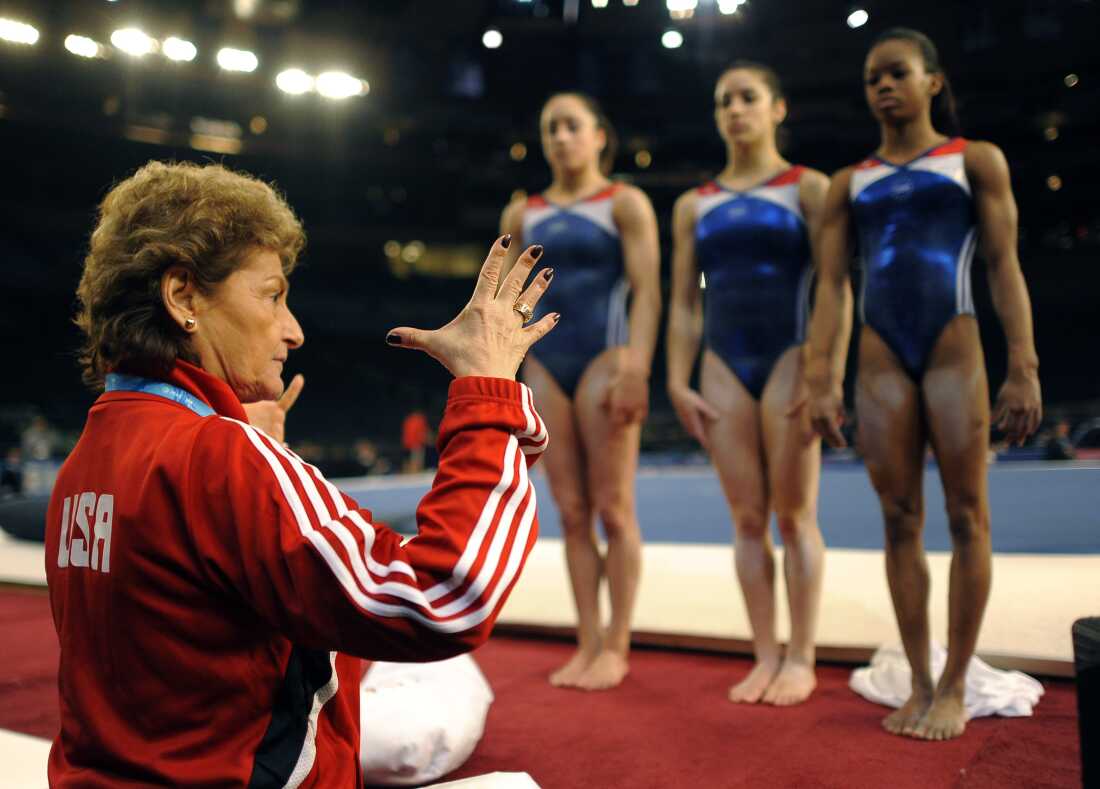
MINNEAPOLIS, MINNESOTA - JUNE 30: (L-R) Hezly Rivera, Joscelyn Roberson, Suni Lee, Simone Biles, Jade Carey, Jordan Chiles and Leanne Wong pose after being selected for the 2024 U.S. Olympic Women's Gymnastics Team on Day Four of the 2024 U.S. Olympic Team Gymnastics Trials at Target Center on June 30, 2024 in Minneapolis, Minnesota. (Photo by Jamie Squire/Getty Images)
At the start of 2018, things were grim for USA Gymnastics.
The organization that oversees one of the country’s most popular Olympic sports was at an all-time low following a massive sexual abuse scandal. It faced shutdown by U.S. Olympic officials. Lawsuits were piling up. Major sponsors, such as AT&T and UnderArmour, had fled.
And perhaps the biggest critics were former gymnasts themselves, who began to speak more openly about a problematic culture in gymnastics that had long been overshadowed by years of Olympic success.
Now, six years later, the overhaul has been significant. No U.S. team is better poised for success in Paris than the women’s gymnastics squad. The five-member team, led by 27-year-old Olympic veteran Simone Biles, is expected to win several gold medals, including the team all-around.
People turned a blind eye to the abuse,” said Dominique Dawes, a member of the 1996 Olympic squad that won the team all-around gold medal at the Summer Games in Atlanta. “People talked about the toxic culture, they talked about the abuses. But I think people were just in awe of what we were able to accomplish.”
Now, the culture at USA Gymnastics has improved, Dawes and others said. A new organization oversees athlete safety and competitors are more empowered to raise concerns. Yet there may still be more progress needed before the turnaround can be considered complete.

“The thing is, I think there will always need to be work that needs to be done,” Dawes said.
Hitting rock bottom
In January 2018, the organization’s longtime team doctor Larry Nassar had just been sentenced to spend the rest of his life in prison after hundreds of young female gymnasts came forward to say he had used his position to sexually assault them.
The abuse scandal had involved others besides Nassar, as first reported by the Indianapolis Star in August 2016 during that summer’s Olympic Games in Rio de Janeiro.
Victims of the abuse said that the organizational culture at USA Gymnastics was partly to blame for the abuse.
“Emotional abuse is rampant, and physical abuse is there. Sexual abuse is a byproduct of what happens when that is the culture,” said Jessica Howard, a rhythmic gymnast who competed with USA Gymnastics in the late 1990s and early 2000s, speaking in an interview with CBS in 2017.
That problematic culture permeated the organization for years, former gymnasts have said. For decades, the women’s program at USA Gymnastics was run by the legendary coach Marta Karolyi, who steered teams to repeated gold medals even as gymnasts left feeling that the success had come at personal cost.

Gymnasts were required to attend training camps at the Karolyi gymnastics facility in Texas, where much of Larry Nassar’s abuse took place, according to victims. Parents were not allowed to accompany their daughters. Access to food was strictly monitored, leading some of those who attended, including Biles, to sneak into the cafeteria at night in order to eat.
“Under Marta, the girls were systematically isolated from parents, siblings, real medical doctors and their own coaches, leaving them vulnerable to daily abuse and starvation,” said former gymnast Rachael Denhollander, the first woman to publicly accuse Nassar, in a post this month on the social media site X.


